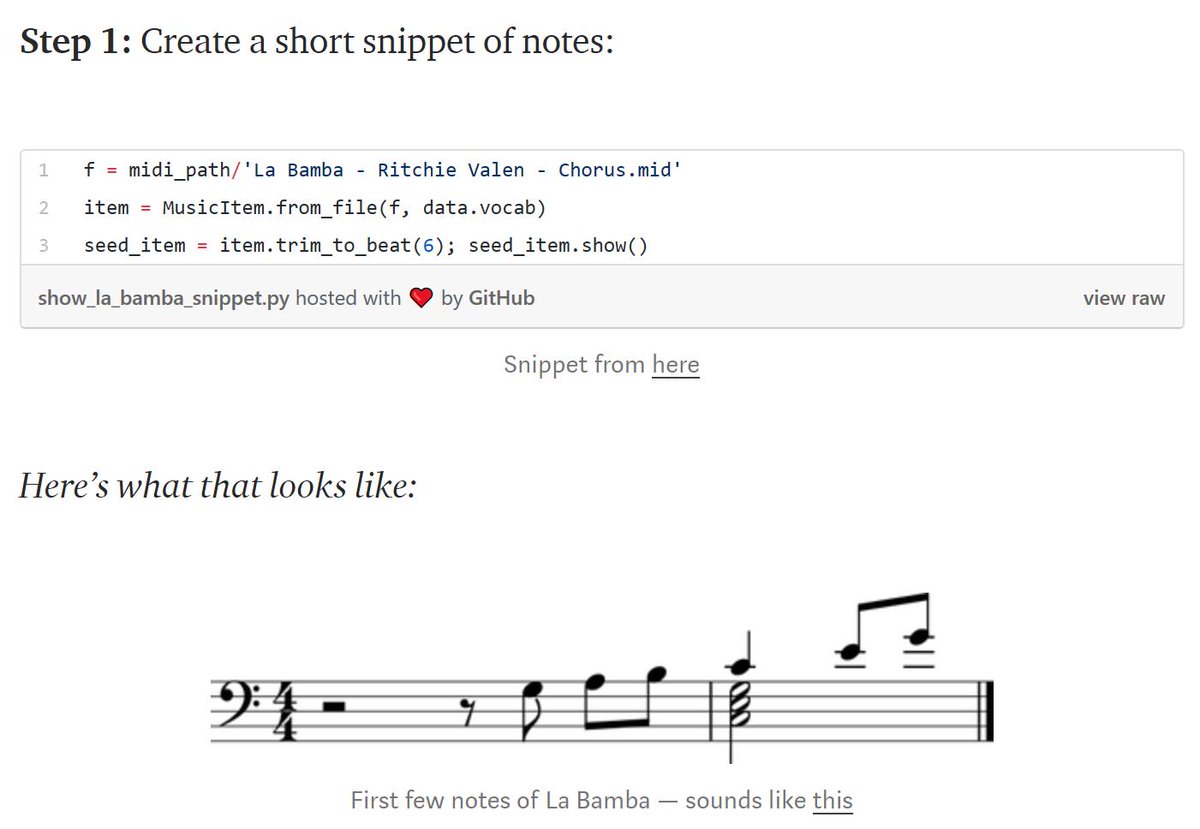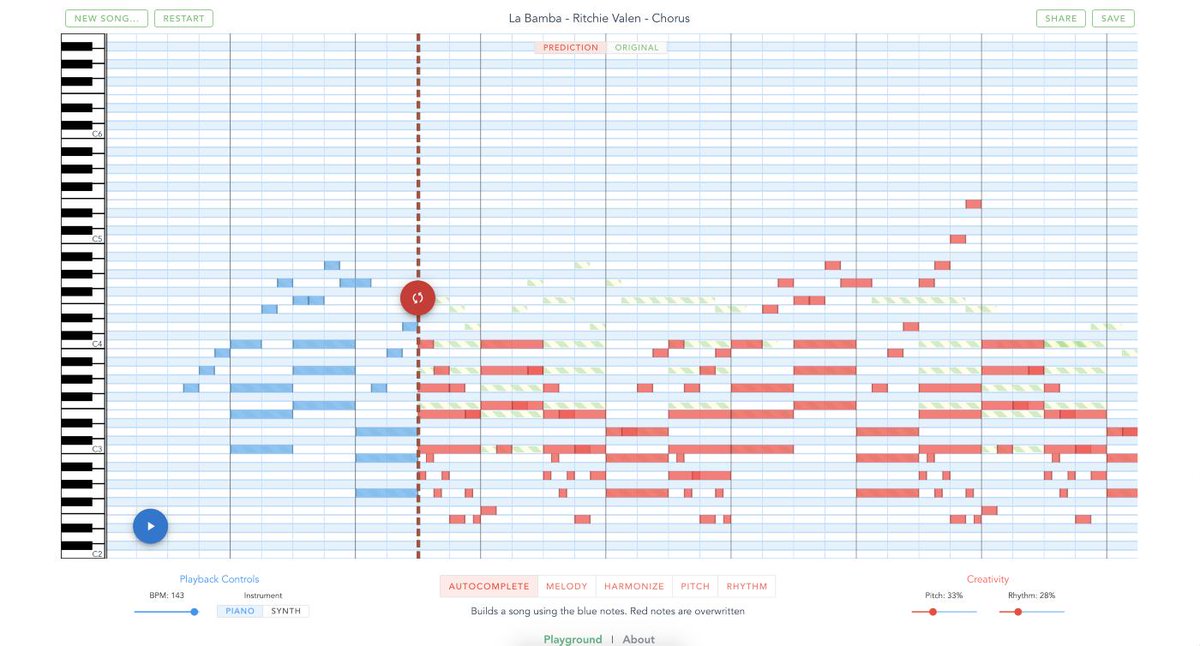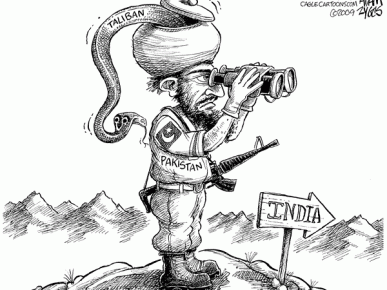
An amazing new project from @bearpelican was just released: https://t.co/DBov6sZTVS . A beautiful design; you can auto-generate a melody from chords, chords from a melody, and more.
It's technically brilliant, combining BERT, seq2seq, and Transformer XL
https://t.co/jF3mO5aXiu


https://t.co/jF3mO5aXiu
https://t.co/DrCJxxJRAy
https://t.co/GgatWxa9nM
https://t.co/U9Yp5IZpxt
More from Data science
✨✨ BIG NEWS: We are hiring!! ✨✨
Amazing Research Software Engineer / Research Data Scientist positions within the @turinghut23 group at the @turinginst, at Standard (permanent) and Junior levels 🤩
👇 Here below a thread on who we are and what we
We are a highly diverse and interdisciplinary group of around 30 research software engineers and data scientists 😎💻 👉 https://t.co/KcSVMb89yx #RSEng
We value expertise across many domains - members of our group have backgrounds in psychology, mathematics, digital humanities, biology, astrophysics and many other areas 🧬📖🧪📈🗺️⚕️🪐
https://t.co/zjoQDGxKHq
/ @DavidBeavan @LivingwMachines
In our everyday job we turn cutting edge research into professionally usable software tools. Check out @evelgab's #LambdaDays 👩💻 presentation for some examples:
We create software packages to analyse data in a readable, reliable and reproducible fashion and contribute to the #opensource community, as @drsarahlgibson highlights in her contributions to @mybinderteam and @turingway: https://t.co/pRqXtFpYXq #ResearchSoftwareHour
Amazing Research Software Engineer / Research Data Scientist positions within the @turinghut23 group at the @turinginst, at Standard (permanent) and Junior levels 🤩
👇 Here below a thread on who we are and what we
We are a highly diverse and interdisciplinary group of around 30 research software engineers and data scientists 😎💻 👉 https://t.co/KcSVMb89yx #RSEng
We value expertise across many domains - members of our group have backgrounds in psychology, mathematics, digital humanities, biology, astrophysics and many other areas 🧬📖🧪📈🗺️⚕️🪐
https://t.co/zjoQDGxKHq
/ @DavidBeavan @LivingwMachines
In our everyday job we turn cutting edge research into professionally usable software tools. Check out @evelgab's #LambdaDays 👩💻 presentation for some examples:
We create software packages to analyse data in a readable, reliable and reproducible fashion and contribute to the #opensource community, as @drsarahlgibson highlights in her contributions to @mybinderteam and @turingway: https://t.co/pRqXtFpYXq #ResearchSoftwareHour
I have always emphasized on the importance of mathematics in machine learning.
Here is a compilation of resources (books, videos & papers) to get you going.
(Note: It's not an exhaustive list but I have carefully curated it based on my experience and observations)
📘 Mathematics for Machine Learning
by Marc Peter Deisenroth, A. Aldo Faisal, and Cheng Soon Ong
https://t.co/zSpp67kJSg
Note: this is probably the place you want to start. Start slowly and work on some examples. Pay close attention to the notation and get comfortable with it.

📘 Pattern Recognition and Machine Learning
by Christopher Bishop
Note: Prior to the book above, this is the book that I used to recommend to get familiar with math-related concepts used in machine learning. A very solid book in my view and it's heavily referenced in academia.

📘 The Elements of Statistical Learning
by Jerome H. Friedman, Robert Tibshirani, and Trevor Hastie
Mote: machine learning deals with data and in turn uncertainty which is what statistics teach. Get comfortable with topics like estimators, statistical significance,...

📘 Probability Theory: The Logic of Science
by E. T. Jaynes
Note: In machine learning, we are interested in building probabilistic models and thus you will come across concepts from probability theory like conditional probability and different probability distributions.
Here is a compilation of resources (books, videos & papers) to get you going.
(Note: It's not an exhaustive list but I have carefully curated it based on my experience and observations)
📘 Mathematics for Machine Learning
by Marc Peter Deisenroth, A. Aldo Faisal, and Cheng Soon Ong
https://t.co/zSpp67kJSg
Note: this is probably the place you want to start. Start slowly and work on some examples. Pay close attention to the notation and get comfortable with it.

📘 Pattern Recognition and Machine Learning
by Christopher Bishop
Note: Prior to the book above, this is the book that I used to recommend to get familiar with math-related concepts used in machine learning. A very solid book in my view and it's heavily referenced in academia.

📘 The Elements of Statistical Learning
by Jerome H. Friedman, Robert Tibshirani, and Trevor Hastie
Mote: machine learning deals with data and in turn uncertainty which is what statistics teach. Get comfortable with topics like estimators, statistical significance,...

📘 Probability Theory: The Logic of Science
by E. T. Jaynes
Note: In machine learning, we are interested in building probabilistic models and thus you will come across concepts from probability theory like conditional probability and different probability distributions.
To my JVM friends looking to explore Machine Learning techniques - you don’t necessarily have to learn Python to do that. There are libraries you can use from the comfort of your JVM environment. 🧵👇
https://t.co/EwwOzgfDca : Deep Learning framework in Java that supports the whole cycle: from data loading and preprocessing to building and tuning a variety deep learning networks.
https://t.co/J4qMzPAZ6u Framework for defining machine learning models, including feature generation and transformations, as directed acyclic graphs (DAGs).
https://t.co/9IgKkSxPCq a machine learning library in Java that provides multi-class classification, regression, clustering, anomaly detection and multi-label classification.
https://t.co/EAqn2YngIE : TensorFlow Java API (experimental)
https://t.co/EwwOzgfDca : Deep Learning framework in Java that supports the whole cycle: from data loading and preprocessing to building and tuning a variety deep learning networks.
https://t.co/J4qMzPAZ6u Framework for defining machine learning models, including feature generation and transformations, as directed acyclic graphs (DAGs).
https://t.co/9IgKkSxPCq a machine learning library in Java that provides multi-class classification, regression, clustering, anomaly detection and multi-label classification.
https://t.co/EAqn2YngIE : TensorFlow Java API (experimental)
You May Also Like
A list of cool websites you might now know about
A thread 🧵
1) Learn Anything - Search tools for knowledge discovery that helps you understand any topic through the most efficient
2) Grad Speeches - Discover the best commencement speeches.
This website is made by me
3) What does the Internet Think - Find out what the internet thinks about anything
4) https://t.co/vuhT6jVItx - Send notes that will self-destruct after being read.
A thread 🧵
1) Learn Anything - Search tools for knowledge discovery that helps you understand any topic through the most efficient
2) Grad Speeches - Discover the best commencement speeches.
This website is made by me
3) What does the Internet Think - Find out what the internet thinks about anything
4) https://t.co/vuhT6jVItx - Send notes that will self-destruct after being read.
















